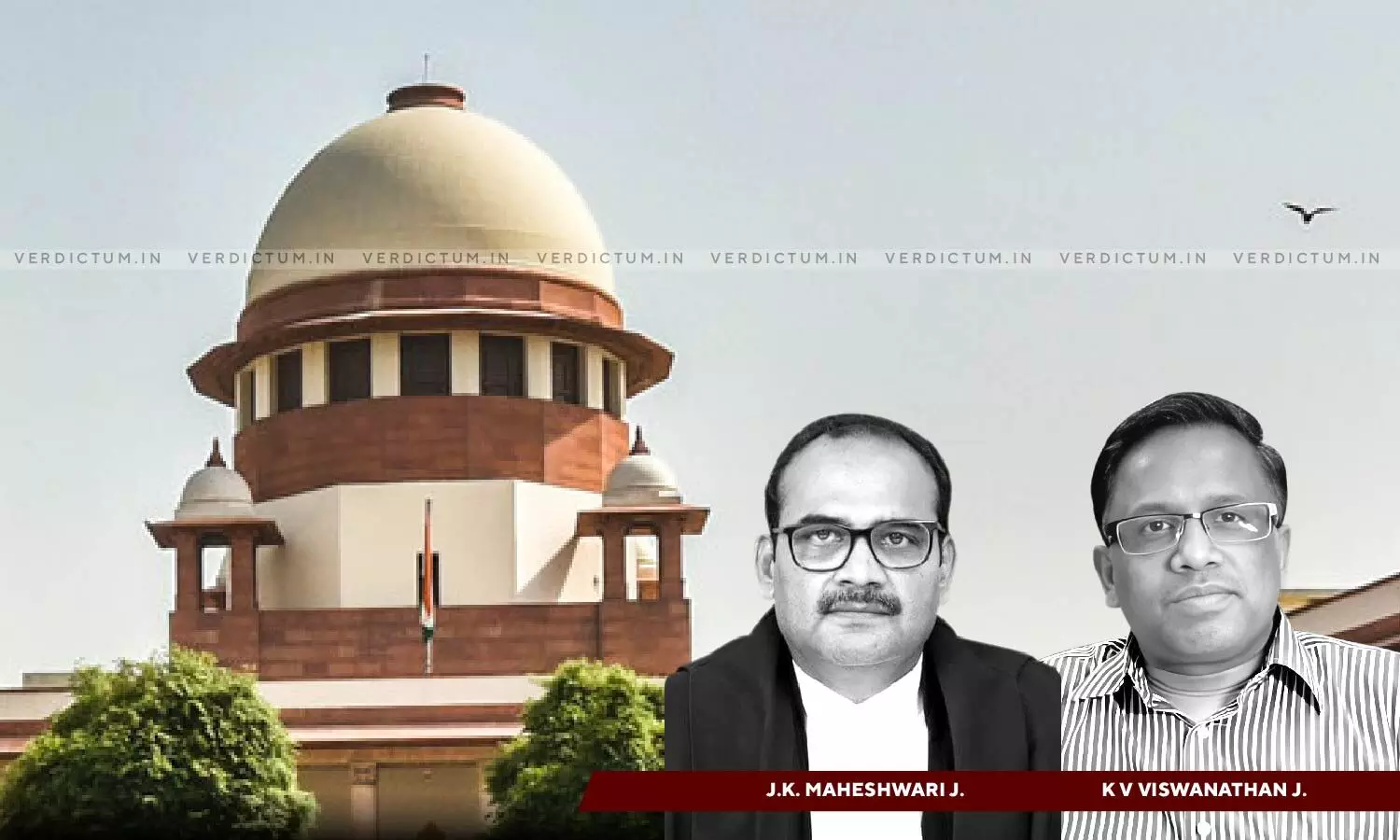
Claim For Absorption As Assistant Teacher Barred By Constructive Res Judicata: SC Denies Higher Pay Scale But Grants Continuity Of Service
 |
|The Supreme Court held that the appellant's claim for absorption as an Assistant Teacher in the Higher Secondary Section with a higher pay scale was not tenable, as he was initially appointed as a substitute teacher in the pay scale of a primary teacher, and this claim had not been raised during earlier legal proceedings. The Court further ruled that the doctrine of constructive res judicata applied, barring the appellant from re-litigating this claim. The appellant was seeking the absorption as an Assistant Teacher with a higher pay scale and continuity of service, which he claimed he was entitled to based on the Supreme Court's earlier order regarding the absorption of substitute teachers.
A two judge Bench of Justice J.K. Maheshwari and Justice K.V. Viswanathan however granted the appellant continuity of service under the Master Circular and ordered the re-fixing of his pay, allowances, increments, and retrial benefits, along with the payment of unpaid arrears with interest.
The appellant, initially a Substitute Teacher, faced disruptions in his service due to terminations before school vacations. He filed an application before the Central Administrative Tribunal (CAT) seeking regularization and salary during breaks. The CAT rejected his application. On appeal, the Supreme Court directed the appellants to be considered for regular absorption without Railway Recruitment Board selection.
Later, the appellant was absorbed as a Primary Teacher. He applied to CAT, for absorption as an Assistant Teacher with higher pay and continuous service. CAT rejected his application, which the High Court upheld, citing the rejection of continuous service benefits in the appellant's case.
Advocate Uttara Babbar appeared for the Appellant and Advocate Nachiketa Joshi appeared for the Respondent.
The appellant's counsel argued for the appellant's entitlement to absorption as an Assistant Teacher or benefits under the Master Circular, while the Union of India's counsel defended the existing orders, asserting that the appellant's case was different from a cited case and that there was no specific direction for continuity of service in the appellant's case.
The Court observed that the appellant's claim for absorption as an Assistant Teacher in the Higher Secondary Section with a specific pay scale was deemed untenable. This was because the appellant was initially appointed as a substitute teacher in the pay scale of a primary teacher, and he had not previously raised this claim during earlier legal proceedings. The Court added, “We are of the view that the appellant’s claim for absorption as Assistant Teacher in the Higher Secondary Section in the pay-scale of Rs.5500-9000 is not tenable.”
The Court further noted that contention for absorption as an Assistant Teacher in the Higher Secondary Section was strongly opposed by the respondents, who pointed out that the appellant had been engaged as a substitute teacher with a different pay scale. The claim that he taught classes for XI and XII was challenged as unfounded, although the CAT had acknowledged that he functioned as a mathematics teacher for these classes as a temporary measure.
It was emphasized that during the previous round of legal proceedings, the appellant had not raised the issue of absorption as an Assistant Teacher in the Higher Secondary Section. The Screening Committee, acting in accordance with the orders of the Court and the Master Circular, had determined his suitability for absorption as a primary teacher based on his prior appointment records, which clearly showed that he was appointed as a substitute primary teacher. Consequently, the Court found that his claim for absorption in the Higher Secondary Section was barred by constructive res judicata, a legal principle preventing parties from re-litigating matters that could have been raised previously.
The Court explained that doctrine of constructive res judicata is rooted in the principle of finality of litigation and ensures that all relevant claims are presented during legal proceedings. This doctrine has been recognized and applied by the court in various cases.
While the appellant argued that he should at least receive the salary and allowances of Assistant Teachers in the Higher Secondary Section for the period he worked, this argument was rejected by the Court based on the earlier reasoning.
However, the Court granted appellant the right to continuity of service under the Master Circular, coupled with previous court orders, which had arisen as a fresh cause of action due to his absorption later by the Supreme Court order. The Court said that the conduct of the authorities during the screening process also indicated that they intended to treat the appellant's case similarly to others. The Court held, “The Tribunal and the High Court have grossly erred in denying the relief by wrongly understanding the orders of this Court and the legal position.”
The Court said that appellant's service was to be counted from date of obtaining temporary status, and he was entitled to all benefits as per the Master Circular, including the re-fixing of his pay, allowances, increments, and retrial benefits. Unpaid arrears were to be paid to the appellant with a six percent interest rate from the respective due dates, and this payment was to be made within eight weeks from the date of the court's decision.
In conclusion, the High Court's order was set aside. The appeal was partly allowed, and no costs were awarded.
Cause Title: Samir Kumar Majumder v. The Union of India & Ors., [2023INSC836]
Click here to read/download Judgment